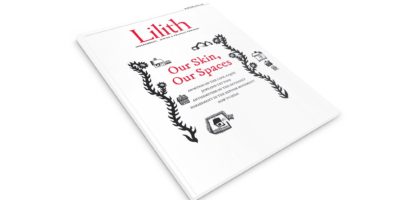A Notorious Family, Fictionalized
What is left to say about the Netanyahus? The family, of course—but also the novel by Joshua Cohen, which landed on shelves and started picking up steam right around the time Bibi found himself ousted from power in Israel in June 2021. The full subtitle winks at the tone of the text: The Netanyahus: An Account of a Minor and Ultimately Even Negligible Episode in the History of a Very Famous Family [New York Review Books, $16.95]. Cohen uses the titular clan to re-imagine the campus novel, while creating high- stakes drama about identity, place, and peoplehood. The trouble is that though the novel makes the Netanyahu family many things—uncouth, loud, smelly, rabidly nationalist—it doesn’t quite make them believable. All the rest is, as they say, just commentary.
Cohen’s novel begins with a fictionalized anecdote once conveyed to him by the late Harold Bloom (a pillar of literary scholarship) and spins a yarn about a campus visit gone disastrously awry. He transforms Bloom into Blum, a Jewish historian (“But not a historian of the Jews”) at the fictional Corbin College in New York (see: Cornell) tasked by his goyishe colleagues with sitting on the hiring committee for an Israeli professor of the Spanish Inquisition named Benzion Netanyahu. The real Benzion (father of Bibi, who appears in the novel as a rather nasty ten-year-old) did actually seek a teaching position in the United States in the 1950s after running afoul of the moderate Zionists consolidating power in the fledgling state of Israel. Bibi’s father is, as the assimilated Blum realizes with horror, a “true believer”—not just in his faith, but also in the political force of the Jewish people, historical outsiders now in control of Israel. When the Netanyahus arrive at Blum’s front door (naturally, Blum is not prepared for Benzion to have his wife and three sons in tow for a campus visit), chaos ensues.
Much comparison has been drawn between Cohen and Philip Roth, specifically Roth’s 1959 novella and collection Goodbye Columbus. (I’d throw in the Coen Brothers’ 2009 film “A Serious Man,” itself undoubtedly influenced by Roth). When you’re writing within the world of American Jewry for American Jewish audiences, you tend to turn over familiar ground. Assimilation versus segregation. Diaspora boy versus Israel Man. Gastrointestinal distress. Our noses. Our penises. Their penises.
And yet, with all that, I’d be hard-pressed to say I’ve read anything half as original in the last three years, particularly in the Jewish canon, as this novel. It got inside my head—partially because of disdain, and partially because it frequently made me laugh out loud (what can I say? I love toilet humor). I felt gilded when I understood a reference, when I knew what the Yiddish meant. At every turn, I felt like I was the audience for this book—and that, I suspect, is what Cohen was aiming for. Jews who think about being Jewish, and Jewishness, all the time. Jews who want to be in on the joke, who keep finding new ways to cover the same ground.
Though I felt rather smart and subversive for enjoying The Netanyahus as I was reading it, once I closed the book, I started to sour on it. I was in on the joke—but the joke wasn’t sure of its own punchline.
Especially when it came to the women. Blum’s daughter Judy wants a nose job (but don’t worry, she’s also in line to be valedictorian.) During a sequence when she crouches behind a door and tricks her grandfather into accidentally crushing her nose, I rolled my eyes. You’re meant to see Roth-lite hijinks in Cohen’s plot points, such as landing his version of Entebbe raid martyr Yonatan Netanyahu (13 at the time the novel is taking place) in bed with Judy (16 or 17) at the climax (another eye roll) of the novel. Do you understand, Jews of the Diaspora? You can’t ignore Israel! Israel is in bed with your daughter. Only the Holy Land could produce such virile bar mitzvah boys. Nathan Goldman’s Jewish Currents review—a rare critical take on the book—puts it most succinctly: “Like a joke worn to ribbons from overtelling, the laughter [Judy’s arc] conjures isn’t spontaneous and transgressive, but knowing and hollow.”
Ultimately, there’s no comforting conclusion to the chaos. The path of the Netanyahus remains unchanged in Cohen’s creation. We know their destruction of the Blum family home is a metaphor in-world for the destruction they will bring to any semblance of a peace process in Israel. This struck me as so simplistic as to be cowardly. In the end, the Netanyahus get ahead of Cohen— even in fantasy.
Justine Orlovsky-Schnitzler is a folklorist, reproductive rights advocate, and amateur baker currently at home in the South. You can find her on Twitter @justineodashs.




